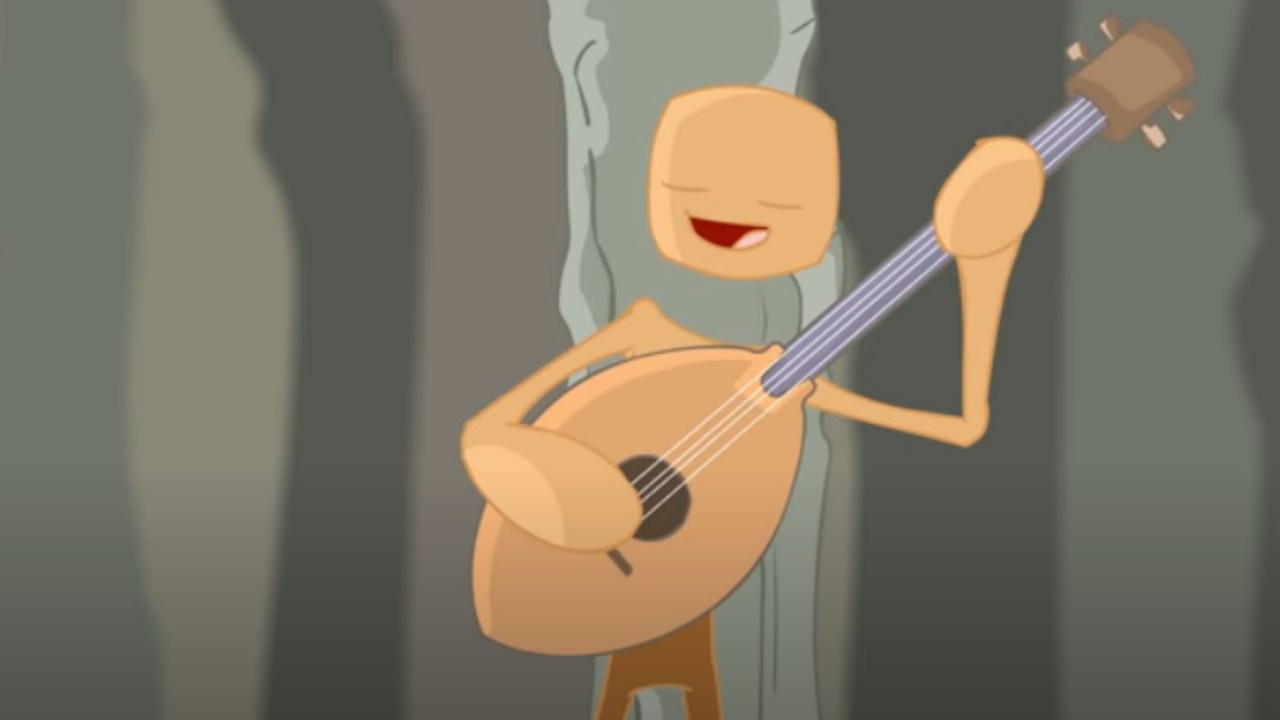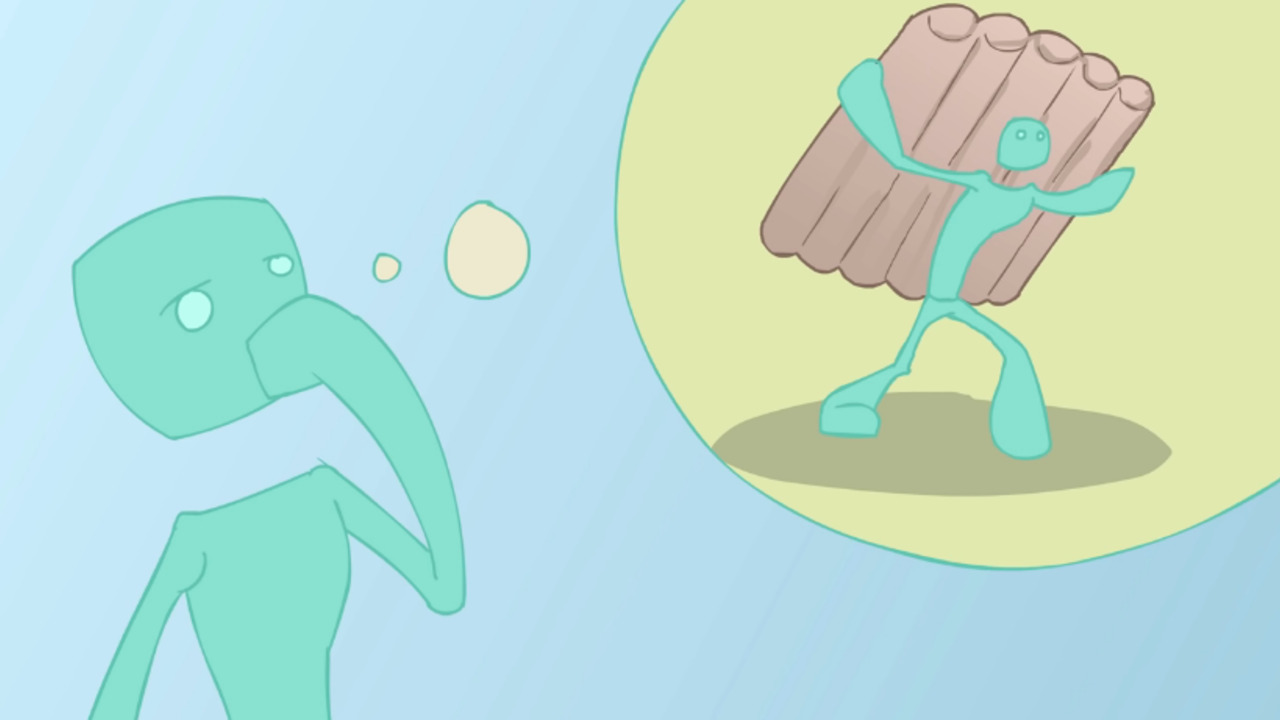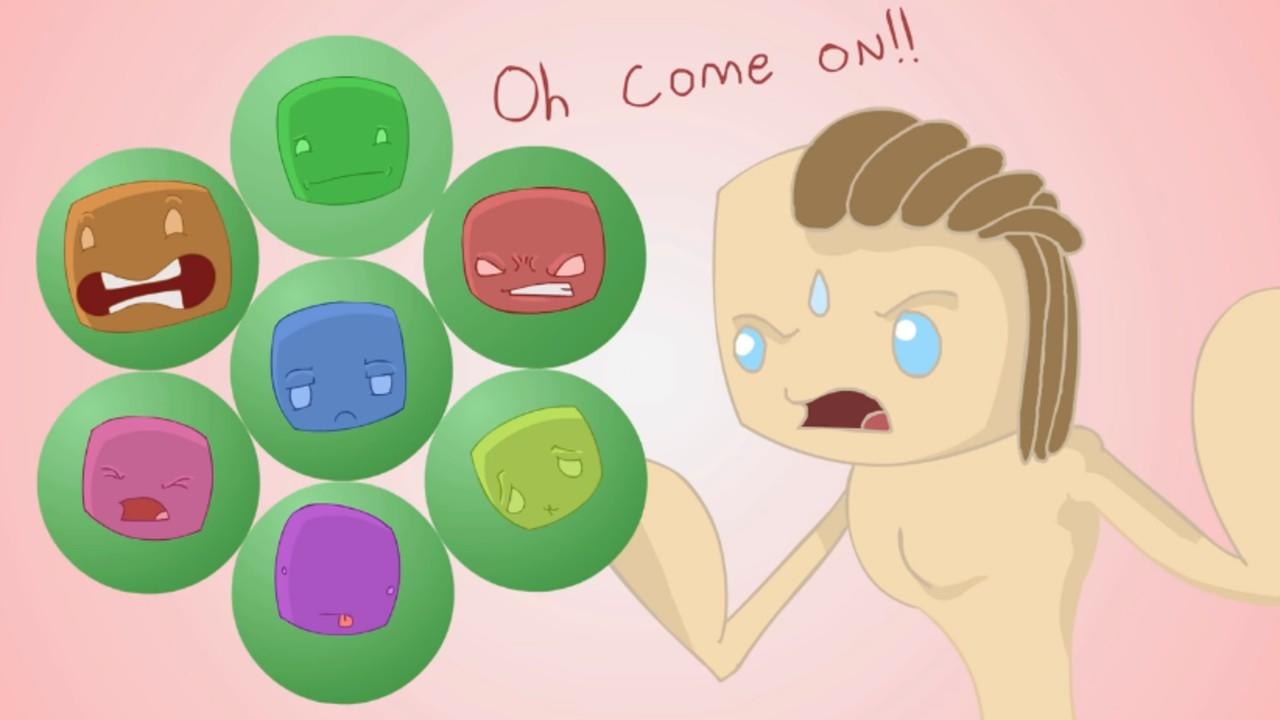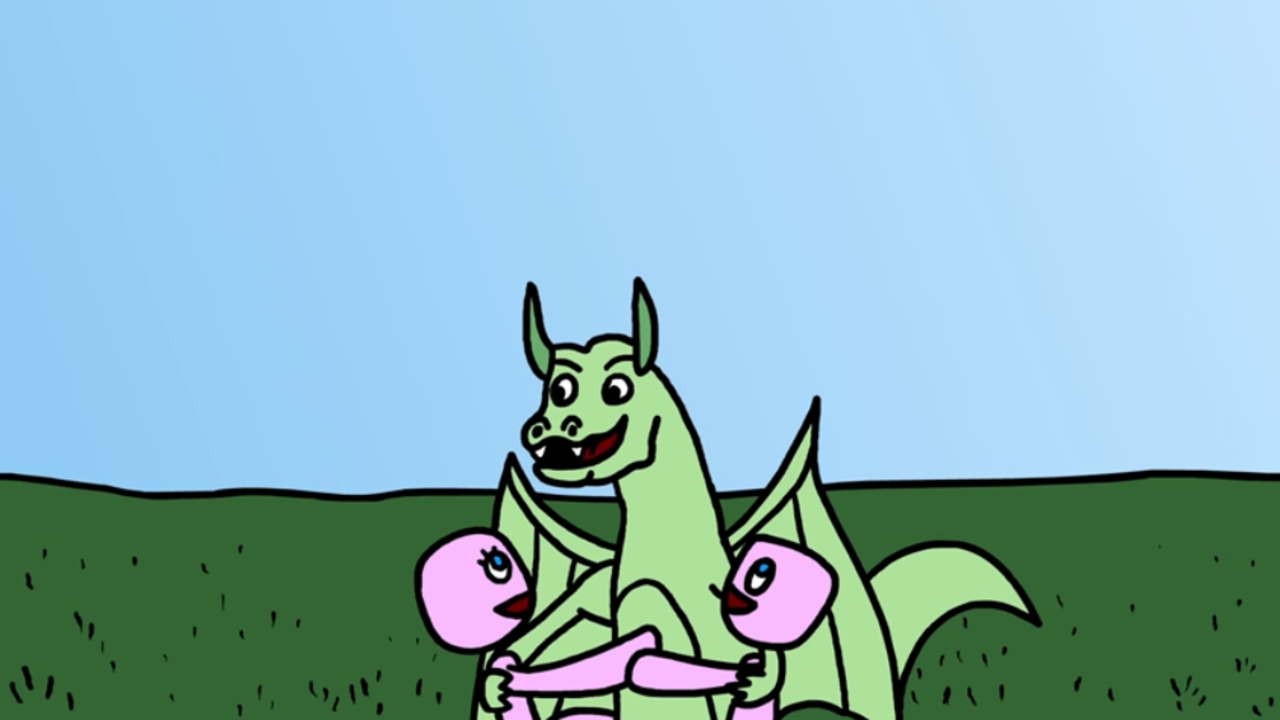Join the Spirit Science Community
Spirit Mysteries is an online modern Mystery School with a vibrant and elevated community, and containing hundreds of hours of courses.
Patch Parables ~ The Parable of the Lute

The parable of the lute is a lesson that comes from Buddha. A long time ago, the Buddha was living on a mountain called Vulture Peak.
During this time, a man named Sona was living down in the cool forest below. While meditating, this thought came to him: I am an energetic student of Buddha, yet my mind has not found freedom.
Buddha heard this thought within his own mind and set off Vulture Peak to find Sona. The Buddha found him within the forest very quickly and approached Sona. He asked him if he just had this thought that he heard in his head. Sona replied that did, in fact, have this thought.
Buddha continued on, asking Sona if when the strings on his lute were too tight, was it easily playable? Sona said, “Certainly not, Buddha.”
The Buddha pressed on, asking if when the strings on his lute were too loose, was it then easily playable? Sona replied with another no.
Finally, Buddha asked when the strings on the lute weren’t too tight or too loose, then was it able to be playe...
Patch Parables ~ The Parable of the Raft

The parable of the raft explores the nature of getting across, but not retaining. A spiritual leader describes this parable to a group of monks. He begins by saying, imagine there is a man trying to cross a river.
On the side closest to him, the river is filled with dangers and fears, while the far side is beautiful and peaceful. He wishes to cross to the other side, but how? There is no boat or bridge to cross, so the man creates his own raft out of sticks and branches.
Once on the other side, he sees how useful this raft is. He wonders if he should carry it with him on his journey, taking it on his head and shoulders. The leader asks the group of monks, what should he do? No one answers.
The leader explains that he should walk away, and continue on his journey without the raft. This is what should be done to the raft, not to retain and hold onto it, but to let it go.
This parable explains the importance of letting things go with the flow in life. We are so quick to hold onto ev...
Patch Parables ~ The Parable of Good or Bad

Who knows what’s good or bad? This parable explores this contrast of ideas and perspectives. There is an old story of a Chinese farmer who accidentally left his gate open, and his horse ran off. His foolish neighbor came over to console the wise farmer, who simply replied with “Who knows what’s good or bad?”
The next day, the horse returned with a large band of other horses following her. The neighbor came over to congratulate him on his good fortune. The wise farmer just replied, “Who knows what’s good or bad?”
Then, the wise farmer’s son broke one of his legs trying to ride one of the new horses. The foolish neighbor visited them to console him again, with which the wise farmer once again replied with “Who knows what’s good or bad?”
When the army then passed through, looking for more people to add to their army, they passed over the son because of his broken leg. The neighbor came to congratulate him on being spared for the army, once again he was met with “Who knows what’s good...
Patch Parables ~ The Parable of the 84th Problem

A man once visited the Buddha, looking for him to help solve his problems. He started to describe his different problems. After he asked for help on one of his issues, the Buddha said that he could not help with that problem.
The man was surprised that the Buddha could not help him, but carried on and asked for help with another problem. The Buddha replied again, saying he could not help him solve that issue either.
The man got impatient. He asked how it was possible that the Buddha is the most perfect, enlightened man, but he can’t even help others solve their problems? The Buddha said one will always have 83 problems in their life. Some will leave, and others will come up and he cannot help anyone with that.
The baffled man then asked, “What can you help me with then?” The Buddha said he could help him with his 84th problem. The man asked what that was, to which the Buddha replied with “That you want to solve your other 83 problems.”
This parable asks us to look at the issues w...
Patch Parable ~ The Parable of the 2 Monks

This episode is a two-parter! The first one is very short and sweet. It starts with 2 monks who need to cross a great river to reach the village on the other side. As they begin, they see a woman struggling to get across the river by herself.
One of the monks swiftly picks her up and carries her across to assist in her journey. For monks, even being in the presence of a woman is forbidden, so this was a very courageous act. As the 2 monks continue their journey, finally the other monk bursts out “How could you do such a thing?! How could you ever touch a woman?!”
The monk laughs, telling the other monk “I put that woman down miles ago, and yet you are still carrying her.” How true indeed.
This parable teaches us not to hold too tightly to our thoughts and to practice seeing our thoughts as things too. We must be in a state of flowing if we wish to be mentally balanced.
Patchman goes on to tell another quick parable. It is the parable of the water pots. An elderly woman carries 2 ...
Patch Parables ~ The Parable of the Stonecutter

This episode begins with a stonecutter. As he chips away at a rock, he sinks deeper into a feeling of dissatisfaction with himself and his position in life.
He walked through the town and passed the house of a very powerful merchant. Inside, there were many fine items and other important people all talking together. He became very envious and wished he could be just like the merchant. Eventually, he worked enough to become as powerful as the merchant.
Now he was envied by those who were less fortunate than him. Then, he saw a high official pass by, being carried in a fancy sedan chair and escorted by guards beating gongs. Everyone bowed before the official, and the man thought “I wish I could be a high official.” And then, he became one.
He was carried around in his sedan chair, feared and hated by the people who had to bow before him. One day, the sun was blazing hot and made him very sticky and uncomfortable in his chair. The man thought the sun was so powerful, he wished to be...
Patch Parables ~ Adventures of the Reluctant Messiah

Once there lived a small village of little creatures, along the bottom of a great crystal river. The current of the water swept over them all, young, old, rich and poor. They all clung to the rocks and shrubs at the bottom of the river, for this was all they knew.
They had all learned from birth that they must cling and hold onto something or else the current would sweep them into an unknown abyss. This resistance was their way of life.
Then one day, one of the creatures became tired of clinging. He said he would die of boredom if he continued to hold on forever. He trusted that he current would take him where he needed to be, even if he couldn’t see it.
The other creatures laughed and called him a fool. They said the waters would kill him much faster than boredom would, but the creature didn’t care. He trusted in the flow of the river.
When he first let go, he was initially thrown around the bottom of the river, hitting rocks and sticks. But as time went on, and he refused to cl...
The Parable of the Archer *DELUXE*

The Parable of the Archer returns in this REDUX episode, adding new voices, music, and a discussion piece at the end! This parable teaches us profound lessons about the interconnection of mind and body, and that while we may think we are skilled in one area, it is only because we have created strong and confident connections there mentally - always push your comfort zone (though maybe it's best not to jump onto precarious logs over massive canyons), and strive for higher consciousness, always!
There once was a young archer, a champion of bows and arrows, with great technical skill. He could shoot an arrow directly hitting a bullseye, then shot another arrow that split the first one in half.
The young man was quite boastful about it as well. He demonstrated this bullseye after asking an old zen master, who was known for his archery skills, to challenge him. He thought he could win no problem.
The old master simply waved his hand, beckoning for the young man to follow him. Curious ...
The Parable of the Butterfly Dream *DELUXE*

The Butterfly Dream returns in this Deluxe edition, adding new music, dialogue, and an extended ending discussion to add more weight to the dialogue. What is the nature of reality anyway, and are we all just dreaming this life into being together?
This beautiful parable is an old Taoist story, told by Chuang Tzu.
The great Taoist master Chuang Tzu once had a vivid dream that he was a butterfly. He fluttered through the bushes and the trees, having a simple consciousness. He no longer had any awareness of his individuality as a human. All he knew was the life of a butterfly.
He flew around the gardens, experiencing fully the existence of a mere insect. Suddenly, he awoke and was taken out of his dream. He sat up and looked around. He thought to himself, “Was I a man who dreamt about being a butterfly, or am I now a butterfly, dreaming that I am a man?”
Which one is it? Could it be both? This amazing parable explores the nature of reality itself. Are we merely dreaming of this rea...
Patch Parables ~ The Parable of the 2 Dragons

The Parable of the 2 dragons was a collaborative effort from several young animators who wished to try their hand at making a parable. This story takes on the classic tale of a Cherokee chief telling his grandson about life and has changed the representation of wolves into dragons for this story.
As the chief and his grandson sat around the fire, he told his grandson that there was a war going on inside him. There are 2 dragons that were in a constant battle. One of the dragons is evil. He is anger, envy, sorrow, and regret. He is greed, pity, guilt, resentment, and lies.
The other dragon is good. He is joy, peace, and love. He is humility, empathy, and compassion. He is the truth.
The chief told his grandson that this same battle is going on within him and every single person on earth as well. The young boy looked up to his grandfather curiously. He asked, “Which one will win?”
The old chief simply replied, “The one you feed.”
This is a classic parable that many people are fami...



